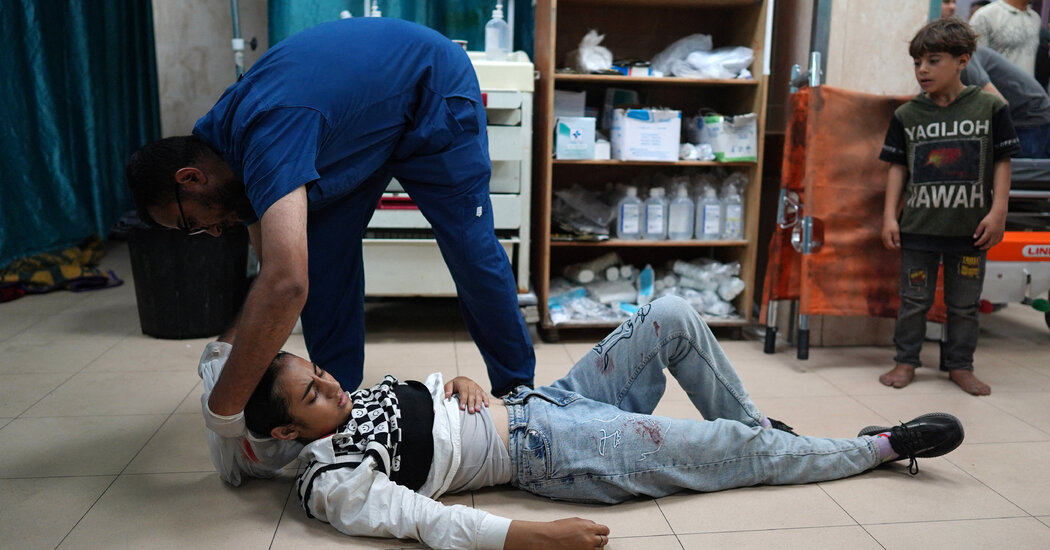The few overwhelmed hospitals still functioning across the Gaza Strip could be completely out of service if diesel generators needed to keep lights on and to run lifesaving medical equipment are not replaced or maintained soon, the Gaza Health Ministry warned on Saturday.
The ministry said it expected a number of generators at the hospitals to fail soon because Israel, as part of its siege of the territory, was preventing the entry of necessary spare parts.
“This means certain death for the sick and injured and the complete end of the health service,” the ministry said in a statement.
One of the main generators at Al-Aqsa Hospital in the central Gazan city of Deir al Balah recently broke down, leaving the medical facility with only one still functioning.
That hospital has been overwhelmed with victims of Israeli airstrikes as central Gaza has come under sustained bombardment in recent days, killing dozens of civilians and wounding many more, according to the ministry and Palestinian news media.
On Saturday, large numbers of wounded — including many children — were taken to Al-Aqsa Hospital, which is not only operating with a sole generator but is also facing a severe shortage of medicine and equipment, a health ministry spokesman said.
Gaza’s hospitals have been hit by Israeli strikes repeatedly since the beginning of the war, now in its ninth month, leaving many no longer functioning. The World Health Organization said this week that, since the Hamas-led attacks on Israel on Oct. 7, there have been 464 Israeli attacks on Gaza’s health care system, affecting 101 health facilities.
Israel has long accused Hamas of using hospitals in Gaza for military purposes, but it has struggled to prove its early claim that the militant group maintained a command and control center beneath Al-Shifa Hospital in Gaza City. Evidence provided by the Israeli military and examined by The New York Times suggests that Hamas has used the hospital for cover, stored weapons inside it and maintained a tunnel beneath the complex that was supplied with water, power and air-conditioning.
The Israeli military has not yet presented similar evidence about other health care centers it has attacked.
Hamas and hospital administrators have denied the Israeli accusations.
With Israel also blocking most of Gaza’s supply of electricity, hospitals have had to rely almost entirely on generators to continue treating patients, many of them the victims of Israel’s military assault on the territory.
Even before the war, Israel and Egypt, which also shares a border with Gaza, had imposed a crippling land, air and sea blockade on the territory for many years.
Once the war began, Israel said it was imposing a “complete siege” on Gaza, creating a dire shortage of food, water and medicines. Israel has also blocked items such as sanitation equipment.
Israel’s civil administration, an arm of its military administration in Gaza and the West Bank, did not respond to questions about the hospital generators. It has previously said that the restriction on goods entering Gaza was meant to prevent the entry of items that could be used for military purposes.
